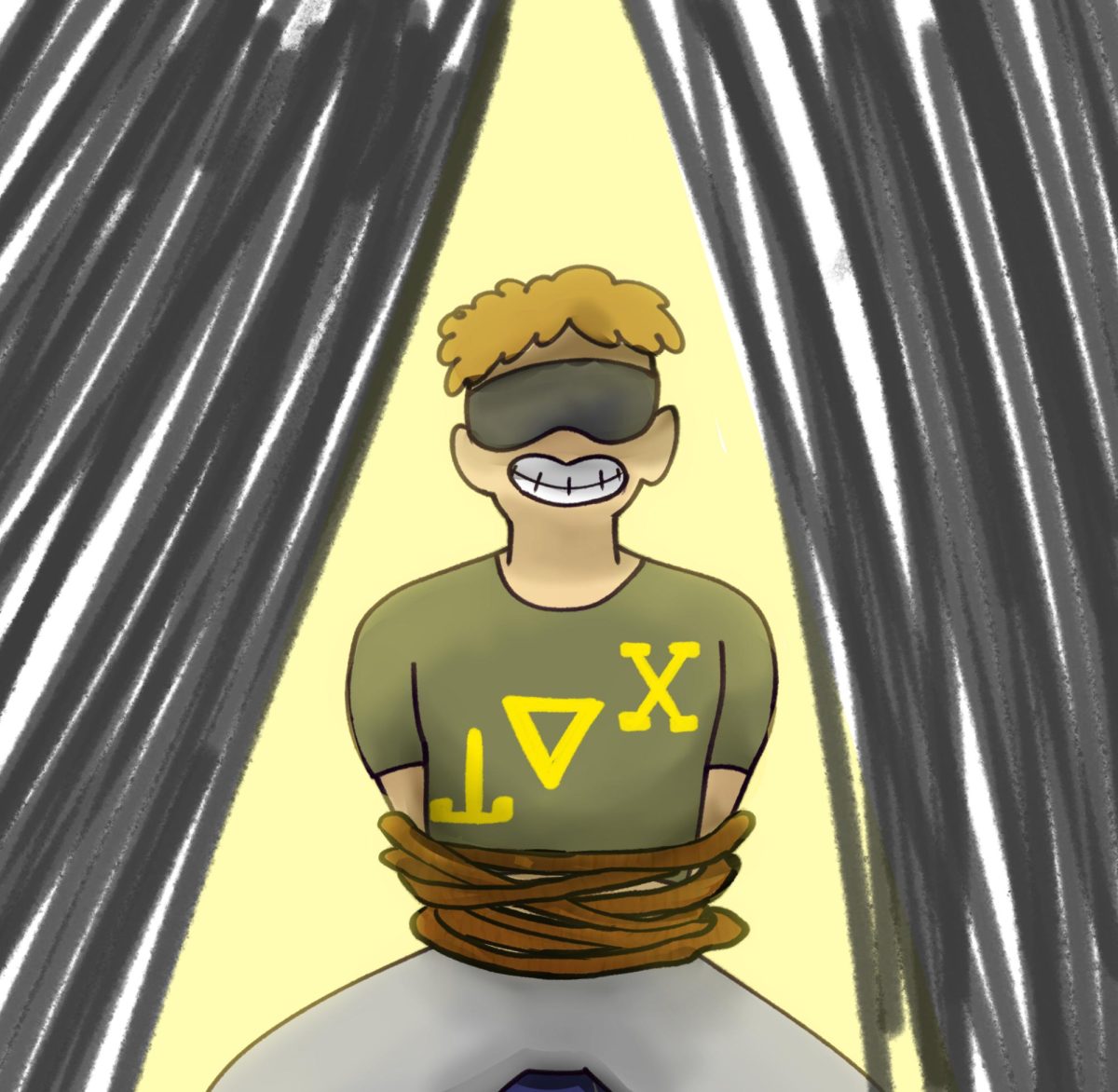OM DIGHE: PRO MIDSOMMAR
“Midsommar” is, in my opinion, a strong horror movie that I can recommend to pretty much any fan of the genre. While I do believe that there are elements that have been misinterpreted into something that goes against everything filmmaker Ari Aster was going for, I think it’s pretty fantastic, thanks to its performances, visuals, score and themes.
Bobby Krlic’s musical score for “Midsommar” creates an excellent tone throughout, mainly due to how intentionally ill-fitting it may seem for a horror movie. Sure, many moments can rightfully instill audience members with dread, but certain pieces of music also feel very hopeful in a way that feels wrong. It’s not just that the music is happy when the movie isn’t, but it’s happy in a way that made me wonder when the other shoe would drop. This works so well on its own, but in comparison to how Aster’s debut “Hereditary” had a dark and unsettling score, it left me consistently rattled.
“Midsommar” also benefits from a solid script with strong themes. We follow Dani (Florence Pugh) and her boyfriend Christian (Jack Reynor) as they visit their friend’s village in Sweden during their Midsommar festival. Much of the film’s emotional turmoil comes from Dani and Christian’s fraught relationship, thanks to the latter’s constant gaslighting and manipulative behavior, but it also comes from the manipulation of the villagers and their havoc throughout. A lot is going on in this screenplay, but the main throughline is very effective in terms of narrative and thematic depth.
The best element of “Midsommar” is easily its lead performance from Pugh. All of the performances are pretty great, with supporting actors Reynor, Will Poulter and William Jackson Harper having some excellent moments, but Pugh steals the show. Dani is a blank slate, as are the rest of the characters, but Pugh’s empathetic portrayal made me feel all of her pain and suffering every time we see her scream and cry (which is, admittedly, a lot of her performance).
All the actors elevate their characters above the caricatures Aster wrote for them. In a way, every single character in “Midsommar” is a slasher character archetype: the final girl, the boyfriend, the nerd, the horny jerk. All of these characters fit within that mold and don’t really contain a lot of nuance in terms of how they’re written, but the actors make them all feel like real people.
My biggest problem with “Midsommar” is, weirdly enough, an issue that I have with fan reception rather than with the film itself. Without spoiling its ending, I feel like people have completely misinterpreted it in a way that makes me wonder about their sense of morality. It is very disturbing to me how many people have taken the objectively bleak finale and attempted to describe it as a “yas queen” moment. It’s like how some people view Amy from “Gone Girl” as a girl boss when she is, in actuality, a deranged individual who should be vilified.
All in all, I consider “Midsommar” to be a very powerful horror film with an excellent lead performance and thematic depth. I strongly recommend seeking out the Director’s Cut, which adds even more depth at the cost of a nearly three-hour runtime, but either way, both editions make for one of my favorite horror movies.
KIERAN GARVEY: ANTI MIDSOMMAR
It’s hard to say you don’t think “Midsommar” is “all that” without sparking some kind of outrage. While I’m not trying to be contrarian, I believe “Midsommar” is a mediocre and overhyped film. To be clear: It’s not terrible, but it is deeply flawed and people tend to overlook the film’s shortcomings. “Midsommar” undeniably has its strengths, particularly in visual style, but it’s easy to critique.
Like all of Ari Aster’s films, “Midsommar” focuses on creating a distinct and visually impressive style. One of the film’s defining strengths is its heavy use of visual spectacle, but this is often at the expense of its storytelling. As a result, the narrative takes a backseat, leading to an overly long film. The pacing is slow, with certain scenes dragging on unnecessarily to make a spectacle of the elaborate visuals. Aster frequently showcases the cult’s rituals to establish their customs and nature, and while this is effective at first, by the 10th time, it starts to feel excessive.
Aster doesn’t solely rely on spectacle, though; he also attempts to explore deep themes and emotional character development. All of this is undermined by the blatant one-dimensional nature of his film’s characters. To be clear, Florence Pugh delivers a phenomenal performance, but even her talent can’t make up for the superficial writing of Dani’s character. Her grief and trauma from her sister’s murder-suicide of their family are primarily used to justify her trip to Sweden and highlight Christian’s shortcomings as a boyfriend, but beyond that, her emotional struggles are barely explored. While some might argue that her trauma is what makes her vulnerable to the cult, the film never actually explores this idea or explains how it makes her susceptible in the first place. It never ends up developing an emotional arc for Dani. Instead, her ending transformation is hastily shown through exaggerated visuals rather than through any meaningful emotional growth.
In addition to Dani’s underdeveloped trauma, her relationship with Christian is just as surface-level. Both characters are reduced to stereotypes, with Dani being the needy, emotional girlfriend and Christian the distant, douchebag boyfriend. This shallow characterization could have served as the foundation for deep character exploration or subversion, but the film never does anything with it. The film instead focuses too heavily on these extremes, leaving Dani and Christian feeling more like caricatures than fully fleshed-out individuals.
The same can be said about every character in the film: All of them come across as extremely one-noted. Mark is the horny brash idiot and Josh is the culturally insensitive self-serving academic. Worst of all, one can’t imagine Christian, Josh, Pelle and Mark actually being friends, not just because of how poorly they treat each other throughout the film. What do these men do together in their free time? Go to Sweden?
While “Midsommar” has a visually striking aesthetic that is hard to ignore, its narrative and character development fall flat under its own weight. Aster chose to focus on visual style, overshadowing meaningful storytelling and resulting in a fundamentally bloated and slow film. Additionally, while Pugh’s performance is spectacular, even her performance cannot save the film from its underdeveloped emotional arcs and one-dimensional characters. “Midsommar” ends up missing the mark, balancing style with emotional substance from start to finish, leaving a film that is visually stunning but ultimately narratively hollow.










